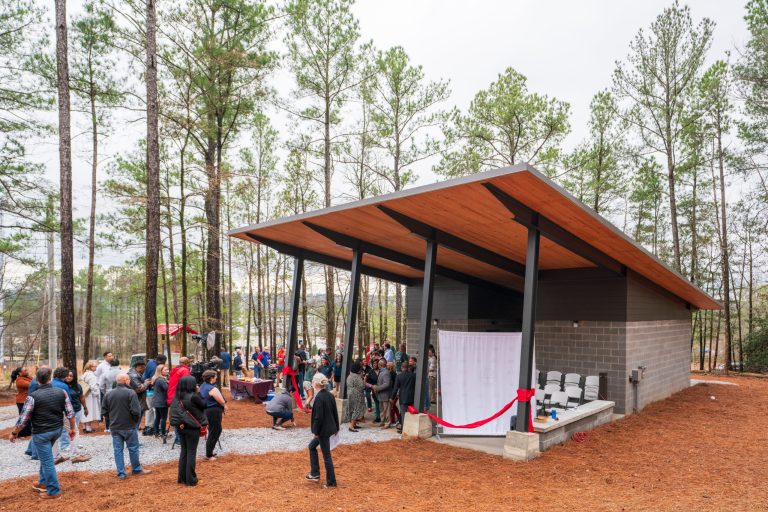5 tips for flower foraging in Birmingham: Q&A with Holly Carlisle of Rosegolden Flowers
Reading time: 4 minutes

There’s nothing quite like having a bouquet of fresh flowers in your home. And instead of grabbing your next set of blooms from Trader Joe’s, why not go foraging for flowers in your neighborhood? We caught up with Holly Carlisle, the floral designer and artist behind RØSEGOLDEN in Avondale—also an avid flower forager—to get her tips on foraging for flowers in Birmingham.
Meet Holly Carlisle, Birmingham-based floral designer and artist who creates some of the most stunning floral arrangements around.
Holly Carlisle’s craft ranges from extravagant archway arrangements to simple, yet stunning side-of-the-road bouquets. You can find her work online and in print in publications like Vogue, Martha Stewart Weddings and Veranda—just to name a few. Additionally, she was one of 20 American designers featured in the book In Full Flower published by Rizzoli.
Holly shares her artistry often via workshops and social media. She recently completed a year-long seasonal workshop series at The Birmingham Botanical Gardens, and shares Seasonal Sketches, a video series where she walks viewers through the process of creating an arrangement of foraged and found flowers, to her Instagram.
Her event design work and workshops have taken her all over the world, but she calls Birmingham home. RØSEGOLDEN, her studio and creative space, is located on 41st Street in Avondale.
When she’s not teaching, designing or producing events, you can find Holly working on an ongoing photographic series of flower portraits and corresponding oil paintings. Follow her on Instagram to see all of her incredible creations, and keep reading to learn a bit more about flower foraging in Birmingham.
Q&A with Holly Carlisle
How would you describe your approach to floral design? And where does foraging fit into your style?
My approach to floral design is one grounded in my love of and reverence for nature, which has truly been my greatest teacher in my pursuit of floristry. I enjoy creating arrangements that reflect the beauty of each seasonal shift. One way to achieve that goal is to incorporate locally foraged elements into my creations.
This practice has me frequently spotted on the side of the road clipping wild Queen Anne’s lace, Johnson grass, elderflower, etc. My love of what many people consider weeds is well known.
What are some of the benefits flower foraging brings to a bouquet or arrangement? And personally, what do you get out of the adventure of foraging for blooms?
I have observed that using materials which people see growing around them, whether it be in their neighborhoods or the side of the road, gives the finished piece a sense of harmony with the natural world. I have also noticed personally that foraging keeps me in better touch with the seasons and their endless offerings.
Any tips for people wanting to forage for their own flowers around Birmingham?
In terms of foraging tips I have quite a few:
- When foraging in the wild, wear pants, boots and long sleeves to protect yourself from snakes, insects, poisonous vines, etc. You definitely do not want to step into an ant bed in a pair of sandals – trust me!
- Forage twice what you think you may need while maintaining the integrity of the plant by making good cuts.
- Please understand the difference between foraging and cutting from a neighbors yard. One requires permission and one doesn’t. P.S. Holly recommends foraging on roadsides so keep your eyes peeled on your next drive!
- After you cut your foraged material with pruners (I recommend Joyce Chen kitchen scissors or ARS pruners, give each stem a fresh cut before putting it in fresh water, allowing it to hydrate for at least several hours before arranging it.
- If possible, forage in the mornings. Most plants perform best when they are cut earlier in the day when it is cooler.







